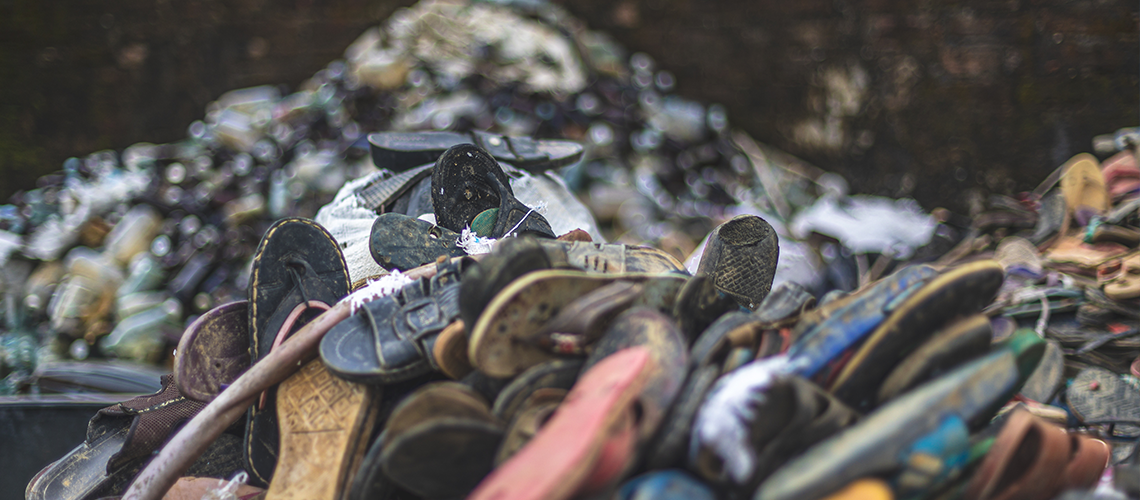Myanmar: Generals who orchestrated Rohingya atrocities cling to power
Yola Verbruggen, IBA Multimedia JournalistMonday 3 July 2023

When Cyclone Mocha hit Myanmar’s western Rakhine state in May, tens of thousands of Rohingya facing tight movement restrictions under the country’s junta had no place to run.
Official numbers are hard to come by, but deaths and large-scale destruction have been reported. According to the military junta, over 100 Rohingya lost their lives. Aid access has been blocked by the military since, leaving displaced people exposed to the elements and without access to clean water, food or healthcare as the monsoon season is about to start.
‘The junta’s apartheid conditions in Rakhine State effectively trapped Rohingya in the path of the cyclone.’ says Shayna Bauchner, Asia researcher at Human Rights Watch. ‘Rohingya told us that some evacuation announcements were made, but they were left on their own to find shelter and transportation, with no idea how devastating the storm would be.'
Brad Hazlett is president of the non-governmental organization Partners Relief and Development. ‘These people didn't have much margin to begin with and when the cyclone hit, they lost everything they had. In some areas, up to 90% of the structures are totally gone, so now they have to rebuild and aid is restricted. They’re back to where they were after the violence in 2012,’ he says.
The camps were created following sectarian violence that displaced thousands of Rohingya in 2012. An estimated 140.000 people continue to live there and are confined to the area. While movement and aid restrictions had been in place since 2012, measures were intensified following the coup on 1 February 2021, when the generals deposed of the quasi-civilian government under Aug San Suu Kyi.
These people didn't have much margin to begin with and when the cyclone hit, they lost everything they had. They’re back to where they were after the violence in 2012
Brad Hazlett
President, Partners Relief and Development
Aid agencies had been in conversations with Myanmar's government to gain access to the areas affected by the cyclone in Rakhine State but, on 12 June, all humanitarian access was suspended. ‘This denial of access unnecessarily prolongs the suffering of those without food to eat or a roof over their head. It increases the risk of food insecurity and water-borne disease,’ UN Resident and Humanitarian Coordinator a.i (ad interim) Ramanathan Balakrishnan said.
A UN report has identified Myanmar as one of 18 ‘hunger hotspots’ in 2023, classifying the food situation in the country as one of ‘very high concern’. It states that ‘many townships and displacement sites in northern Rakhine have lost substantial food stocks and livelihoods’ during the storm.
The up to 250 km/h winds also caused devastation in other areas in the Myanmar’s North-west, where communities had already been affected by increased conflict since the coup. Plans for distribution and transportation to parts of that area – Chin State – also remain pending, according to the United Nations Office for the Coordination of Humanitarian Affairs (UN OCHA).
An investigation into the generals‘ alleged crimes against the Rohingya is in progress at the International Criminal Court and The Gambia filed a case at the International Court of Justice (ICJ) alleging that Myanmar’s persecution of the Rohingya violates the Genocide Convention. Aung San Suu Kyi – at that time as the country’s de facto leader in the position of state counsellor – travelled to the Hague to defend the country against these allegations.
The deprivation of aid could also be a crime under international law, says Steven Kay KC, a member of the IBA War Crimes Committee Advisory Board. ‘Such conduct could come within other inhumane acts Article 7.1.a as defined by the Rome statute, if all the elements of the offence were proven,’ says Kay.
Prior to the cyclone, early in 2023, Myanmar’s military had announced plans to hold an election in an attempt to legitimise its position in the country. The generals since introduced a new law which required political parties to reregister by March or be disbanded. A large number of parties, including Aung San Suu Kyi’s National League for Democracy (NLD), refused. ‘Considering it won 79 per cent and 82 per cent of the elected seats in the last two general elections, the NLD’s participation ‘is a fundamental requirement for credible polls in Myanmar,’ according to the International Crisis Group, a non-governmental organisation.
The Special Rapporteur on the situation of human rights in Myanmar, Tom Andrews, has said that the military junta ‘can make no claim to democratic legitimacy’. Instead, he calls on countries to recognise the National Unity Government (NUG) – the shadow government formed following the coup - as the legitimate representatives of the people of Myanmar.
Under the military, there is little hope for the Rohingya in the camps that they’ll ever be able to return to their homes. Under the guise of closing the camps, the military is building permanent structures – replacing the temporary ones that were supposed to be there for two years only – near the current sites to house them, according to Human Rights Watch.
Also, the hundreds of thousands of Rohingya who fled to Bangladesh following the military’s brutal and deadly campaign in 2017 are at risk of being returned to Myanmar. The Bangladesh government aims to return over 1100 refugees initially, who would be housed in newly built villages that they would not be allowed to leave. While often described as voluntary, threats of arrests for non-cooperation have been reported.
‘The freedom of the Rohingya is very much bound up in the freedom of Myanmar. Junta officials are trying to carry out their problematic ‘camp closure’ process in the Rakhine camps, entrenching segregation and denying Rohingya the right to return home. All of this only makes the prospect of safe returns for Rohingya refugees in Bangladesh even more distant,’ says Bauchner.
Image credit: Waste collected in and around Rohingya Refugee camps in Teknaf, Bangladesh. Moinak
/AdobeStock.com
